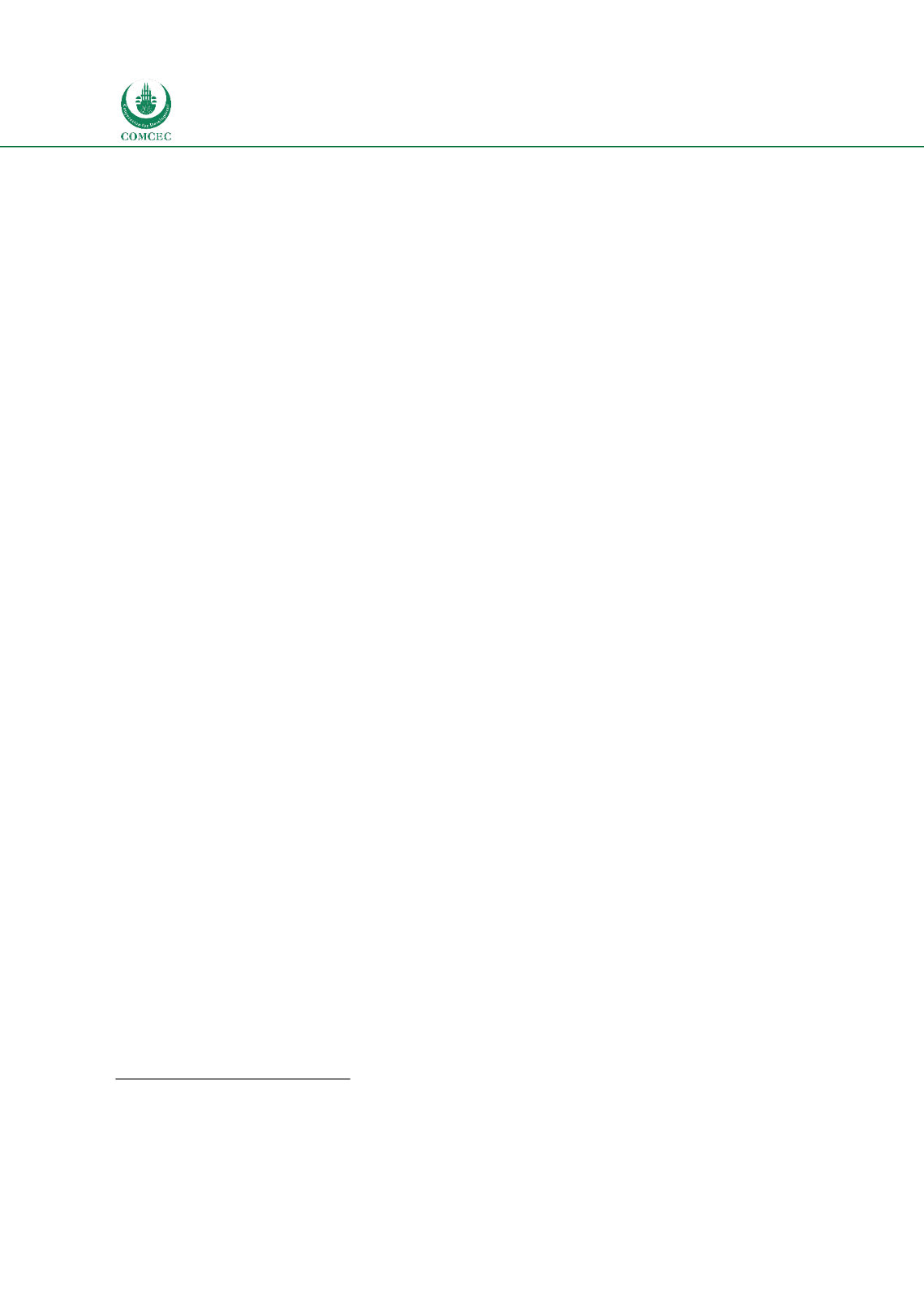

National and Global Islamic Financial Architecture:
Problems and Possible Solutions for the OIC Member Countries
120
4.8. Saudi Arabia
The legal system of Saudi Arabia is based on Shariah principles and the Quran and Sunnah
which form one of the essential pillars of Saudi Arabian law-making
29
. A total of 12 banks and
12 branches of foreign banks represent a mixture of Islamic and conventional business in Saudi
Arabia. The country is considered as one of the largest markets for Islamic banking and finance
in the world. The total Islamic banking assets were valued at USD 291 billion accounting for
51.2% of the total banking assets in the country and 33% globally (EY 2016).
The Saudi insurance sector has a relatively a short history as a formally structured, regulated
and supervised industry. Prior to the passage of the Law on the Supervision of Cooperative
Insurance Companies (the Insurance Law) in 2003 and the Insurance Implementation
Regulations in early 2004, the insurance sector consisted of one state-owned company
(currently known as Tawuniya) (Saudi Arabian Monetary Agency, 2015). Now there are more
than 220 licensed companies that include insurance and reinsurance companies, insurance
brokers and agents, actuaries, loss assessors, adjusters, insurance claims settlement specialists
(third party administrators) and insurance advisors. The takaful insurance represents part of
the Islamic finance industry in Saudi Arabia which is served by more than 35 cooperative
insurance providers. In 2014, the total takaful/retakaful assets in the country were the largest
globally standing at USD 12.38 billion constituting 37.1% of the global assets of USD 33.39
billion (ICD and TR 2015: 18).
Saudi Arabia is host to the largest market in asset management with a total of 169 funds worth
of USD 22.90 billion managed in the country in 2014 (TR 2016: 27). The value of the
outstanding sukuk in the country during the year was USD 46.89 billion constituting 15.9% of
the global outstanding sukuk valued at USD 295.094 billion (ICD and TR 2015: 19).
4.8.1. Legal Infrastructure
Supporting Islamic Finance Laws
The Banking Control Law issued under Royal Decree No. M/5 dated 11/6/1966 (BCL 1966) is
considered the main legislation to regulate all banking and financial services in Saudi Arabia.
This law gives the Saudi Arabian Monetary Agency (SAMA) broad powers to regulate and
supervise Saudi banks and to safeguard the banking system. In line with Article 2 of the Royal
decree, the charter of the SAMA, the SAMA acts as the central bank and is banned from
engaging in business based on interest. All banks come under the control of the traditional
control system. The Banking Control Law is considered the main legislation to regulate all
banking and financial services in Saudi Arabia. It defines the banking business, confers
licensing powers, and determines capital adequacy, opening of current accounts, opening of
letters of credit, issuance of letters of guarantee, payment and collection of cheques, payment
orders, promissory notes and similar other papers of value, discounting of bills, bills of
exchange and other commercial papers, foreign exchange transactions and other banking
business. Being a traditional banking law, Article 10 of Banking Control Law defines baking
29
According to The Constitution of the Kingdom of Saudi Arabia “The Kingdom of Saudi Arabia is a sovereign Arab Islamic
state with Islam as its religion; God's Book and the Sunnah of His Prophet; God's prayers and peace be upon him are its
constitution…”.
















